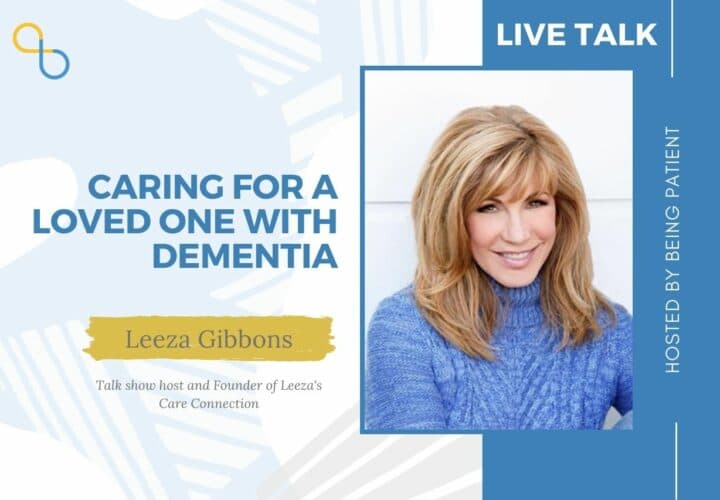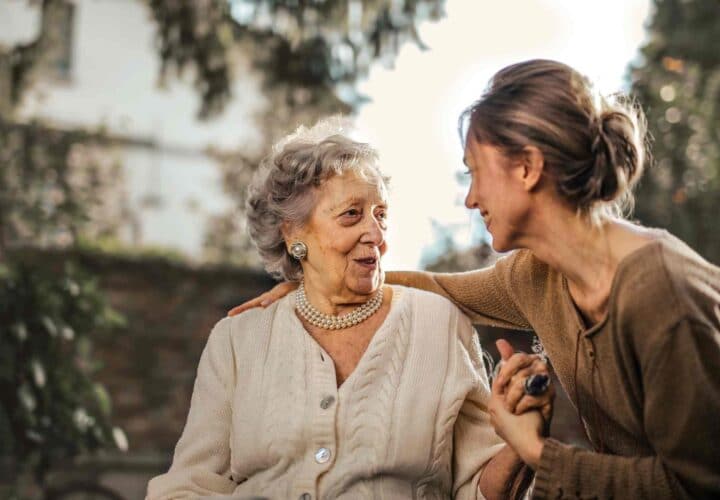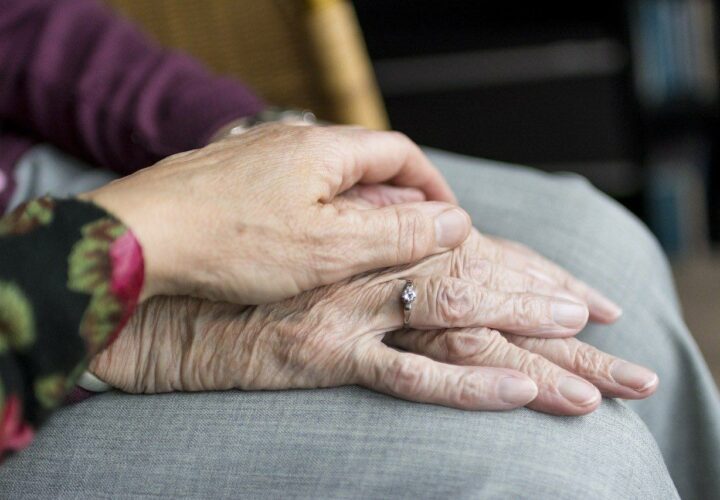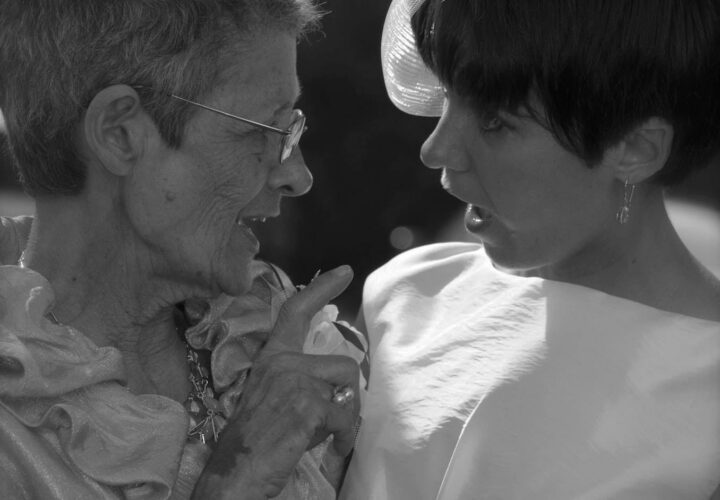Talk show host Leeza Gibbons (Entertainment Tonight) reflects on her family's journey with Alzheimer's, and her mission to support caregivers through Leeza's Care Connection.
Like many loved ones with a family member living with Alzheimer’s, TV host Leeza Gibbons and her family struggled to come to grips with her mother’s diagnosis. The family endured many challenges along the way, and even though family relationships can break apart, caregiving for her mother strengthened Gibbons’ family bond. Inspired to share her mother’s story and provide resources for family caregivers, Gibbons established Leeza’s Care Connection in 2002, a signature program of the Leeza Gibbons Memory Foundation.
- Gibbons’ mother was diagnosed with Alzheimer’s at the age of 63. After a roughly decade-long battle with the disease, she passed away in 2008.
- Leeza’s Care Connection connects caregivers with peers, and educates them in caregiving and self-care strategies.
- For Gibbons, learning to be present and accepting her own limitations are among the most important lessons she has learnt.
Being Patient: Tell us about your family history of Alzheimer’s.
Leeza Gibbons: I remember my granny being so welcoming and safe and funny, and we got away with everything with Granny. I don’t really have any idea what year it was when she put the biscuits in the dresser drawer, when she almost burnt the house down, when all of those awful telltale signs started to appear.
But I remember visiting her when she was in a memory care unit with my mother. Everything I learned about caregiving, I learned from watching my mother care for Granny: bringing her music, putting the lotion on her hands, brushing her hair. Every time we left, my mother would say to me, ‘If that’s ever me, don’t come visit me. I won’t know that you’re there. I don’t want you to waste your life.’
In 2008, my mother died of the same disease that took her mother. I was at that time at the height of my TV career. It was the kind of awakening that made me realize my life no longer made sense. I loved my job. I loved everything about it, but I just couldn’t figure out how to move forward when my true north, my compass for everything in life and the woman that I wanted to be like had suddenly disappeared and I wasn’t able to stop it.
My dad, my brother, my sister and I, and all of our extended loved ones, we didn’t know where to go. We didn’t know what to do. We didn’t know how to find answers and we all went to different corners to lick our wounds. That’s what happens. We respond individually to trauma to pain.
I got to the point where this was just festering and churning and stripping away the essence of what I wanted my life to feel like, which was ‘how can I help?’ ‘how can I love my mother through this?’ and all of those kinds of things.
I went to my agent at the time and I said, ‘Here’s what’s happening with my family so I’m going to create a foundation where we can help other families.” I was told very constructively that this is a depressing disease. This is not marketable. This is not good for your career. This was a while ago. It’s slightly better now but still we tend to be more comfortable hiding.
The advice I was given was keep doing your children’s charities, keep working on things that people can rally behind you for. It was so earth shattering and profound that in that moment, I said, ‘Thank you for that advice and you’re basically fired.’
I knew that I had to move forward with people who understood where I was. With this disease, you don’t know until you know. We put on this sweater and a little badge that says ‘caregiver,’ but it’s itchy and it’s uncomfortable and we don’t want to wear it. We throw it on the top shelf of the closet. There’s a lot of emotional collateral that goes with being a caregiver.
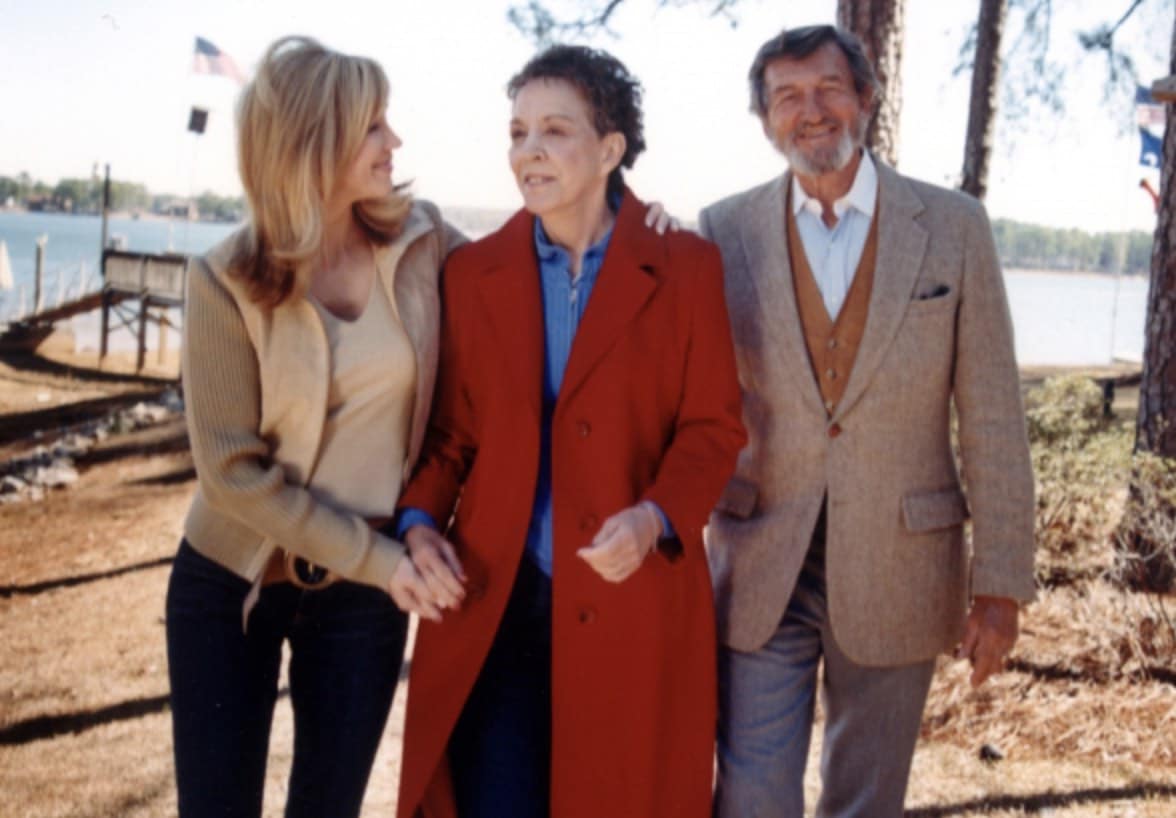
Being Patient: Do you think our society is making progress in combating the stigma of Alzheimer’s?
Leeza Gibbons: It is getting slightly better and we do have this consortium of diagnosed individuals who are incredibly powerful and they are owning it. They have named it. They’re claiming it. They’re moving forward and they’re showing that not only are they still employable and lovable and worthy of the dignity and respect that we would give anyone. They’re helping to break down that wall of shame
This disease is still in the shadows in terms of we don’t have enough language for it, but we certainly know people who are experiencing it. We see that it causes this great unraveling, this emotional unraveling, this spiritual depletion. Certainly it’s financially very costly. It’s costly in every way that we can quantify and in many ways that we can’t. That’s part of the reason why we have this veil of shadow around it because we don’t really know how to help people.
At our organization, we care for caregivers. We have programs for those who are diagnosed and programs for those who care for them. The whole idea is you shouldn’t have to let go of who you are in order to hang onto your relationship with someone that you love just because you’re caring for them.
That’s the reason why I chose this seat at the table, because when I learned that caregivers can die 10 years before their diagnosed loved ones, I thought that caregiver burden can be mitigated. We might not be able to cure the disease right now, but we can certainly change that number so that the worried well — those people in the invisible army — can show up for their lives more effectively and they can be more confident and more competent as caregivers.
Being Patient: You were the winner of Celebrity Apprentice in season 7 and raised money for Leeza’s Care Connection. What was the experience like?
Leeza Gibbons: When the opportunity came to do Celebrity Apprentice, my husband said to me, ‘You know business. I think you can win it.’ I’m like, ‘I’m conflict avoidant. I can’t get on there. That’s not for me.’
He played the best card in his deck. He said, ‘You say you want to tell the caregiver stories. You say you want to talk to other families with Alzheimer’s like your family. This is your chance to do that and to really raise a lot of money. I think you can win it.’
Lo and behold, I did win the darn thing. I did earn some money and that was the way I was able to open up in my hometown. It meant the world and it changed everything.
Being Patient: Can you share with us some of the specific programs of Leeza’s Care Connection?
Leeza Gibbons: We are about focusing on what’s left and not what’s lost. We do believe you should be able to hang onto yourself and forgive yourself and start over tomorrow. We look at education. We look at wellness and prevention. But we also look at self-care, which allows caregivers to survive through this marathon because it’s sure not a sprint.
It’s emotional support. It’s energetic support and most of all, it’s what people tell us they want the most, which is to be connected with others who get them, to be connected with other people who walk this path and understand what it’s really about.
We open up our services to chronic illness and disease. A lot of our expertise is based in Alzheimer’s and dementia, but we have [services for] Parkinson’s, cancer, traumatic brain injury. Caregiving for a chronic injury or something that may ultimately be a fatal disease is the same, meaning it’s relentless. I think that most people will tell you that caring for someone with dementia in the final stages, because you can’t get that important feedback from your loved one, you don’t know if what you’re doing is making a difference. You don’t know if your loved one is in pain. They can’t tell you. There’s so many frustrating parts of it that do differentiate it from other kinds of illnesses that I think it’s particularly painful.
We know in general that better care for caregivers translates to better outcomes for care receivers, and we know that across the board. So we try to focus on that.
Being Patient: Approaching Alzheimer’s as a team makes a huge difference, doesn’t it?
Leeza Gibbons: It does tend to make a big difference and we do see that. It’s hard to find your team because it’s just a very difficult reassignment of your identity. We know that caregivers lose a sense of who they are. That’s a big part of the collateral damage. And when you can reach out to whether it’s a spouse, a companion, oftentimes it’s a member of a community where there’s just another person who witnesses this journey, that is a huge exhale and it bolsters your ability to continue.
I learned how to ask for help. That’s a skill that you develop. You do develop it when other people can help you with that. But it’s not intuitive for many of us and if you’re looking at a way to really be of service to a caregiver, those family members, millions of us out there, listen more and try to give advice less, because sometimes the well-meaning advice can sound like criticism, especially when we’re really sensitive. Show up and take the assignment that the caregiver may give you. If you really make it safe for that person to tell you what would be helpful, ultimately they’ll get to that place.
Being Patient: Do you fear Alzheimer’s?
Leeza Gibbons: ‘Worry’ and ‘fear’ are the kind of bombshell words that I don’t own. Nor do I own the word ‘naive.’ A lot of people who may think everything is stacked up, they’re going to go there. I’m well aware that I have a greater risk. Here’s what we now know, more so than when my mother was diagnosed: Maybe you don’t have to go there if you look after your nutrition; if you value your sleep; if you take care of managing your stress; if you stay social and connected with other people.
All of those things sound like pollyanna happy talk. It is not. It is science. It’s real and you can focus on those things to give yourself the best shot at not getting it. The best way for me to own that family history is to stay really grounded in, ‘Am I doing everything I can not to repeat this story?’ And I can tell my children, and I do, that I am.
Being Patient: How would you sum up the most important lessons you’ve learnt so far?
Leeza Gibbons: I learned to be present. I learned that no matter how much energy we have, how smart we think we are, how much money we may have, you can’t always fix everything. Sometimes there is grace in acceptance, and there are tremendous lessons in knowing your limits. I think that the bottom line is we are stronger because of our limitations, and our vulnerabilities are the things that make us human and that’s how we connect.
The interview has been edited for length and clarity.
Contact Nicholas Chan at nicholas@beingpatient.com
